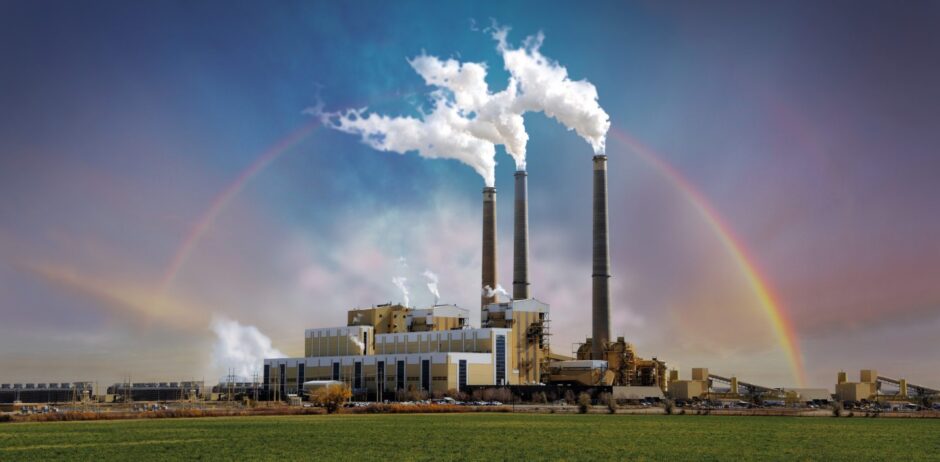
Energy-from-waste operator Enfinium has launched a carbon capture and storage (CCS) pilot – the first of its kind – at one of its sites in the UK.
The trial is taking place at Enfinium’s Ferrybridge-1 energy-from-waste facility in Knottingley, West Yorkshire, and will run for at least 12 months. It will capture 1 tonne per day of CO2 from the plant’s operations.
Over the course of the pilot, operational data on performance including CO2 capture rate and solvent degradation will be collected, and the performance of different amine solvents will be assessed.
This comes ahead of a planned roll-out of CCS operations across all of Enfinium’s UK facilities, of which there are currently four, with a further two under construction.
The technology being used for the pilot is a containerised, scaled-down version of the CCS technology that the company could deploy at scale across all six of its sites if the trial is successful. Hitachi Zosen Inova (HZI) supplied the CCS technology for the pilot.
Enfinium’s plans to roll out CCS across its operations are in line with its net-zero transition plan, unveiled in May, which targets up to 1.2m tonnes per year (tpy) of CO2 removals in the 2030s. The company intends to invest up to £1.7b in the plan, which centres on the deployment of CCS across its sites.
Negative emissions
Enfinium said the deployment of CCS at energy-from-waste facilities generates durable carbon removals, or “negative emissions”. This is based on the fact that around 50% of unrecyclable waste is made up of biogenic content, including organic material such as waste food, plants and paper, which has already naturally absorbed CO2 from the atmosphere.
If this CO2 is then captured and permanently stored using CCS technology, this results in a net CO2 removal from the atmosphere, Enfinium said, citing the Intergovernmental Panel on Climate Change’s (IPCC) findings on biogenic matter.
“CCS technology is central to how the UK will be able to decarbonise its unrecyclable waste,” said Enfinium chief executive Mike Maudsley. “CCS is also critical to generating carbon removals at scale so the UK can achieve net zero.”
HZI chief executive Bruno-Frédéric Baudouin added that he expects the project to meaningfully expand his company’s carbon capture knowledge base, providing a springboard for delivering decarbonisation initiatives globally.
Industry groups also welcomed the pilot, with Carbon Capture and Storage Association chief executive Olivia Powis describing it as an important demonstration of the use of CCS to generate clean power via energy from waste – as well as providing a future route to establishing the UK’s greenhouse gas (GHG) removal market.
“Through projects such as the one at Ferrybridge, the UK will be able to meet the clean power by 2030 target,” Powis said.
Her optimism comes as pressure mounts for the UK to ramp up its decarbonisation initiatives if it is to meet medium-term and long-term targets. Indeed, the UK’s Climate Change Committee said in its July progress report that the country must accelerate carbon removals if it wishes to stay on track for net-zero emissions in the longer term.
Meanwhile, research by the Oxford Institute for Energy Studies (OIES) recently found that the energy-from-waste industry could contribute up to 8m tpy of carbon removals in the UK. And Enfinium is aiming to account for over one eighth of this with its goal of 1.2m tpy of carbon removals.
Enfinium said it was also advancing the planning and consenting programme for the installation of CCS at its Ferrybridge 1 and 2 facilities with the launch of a five-week public consultation period, which would run from 16 September to 20 October.
